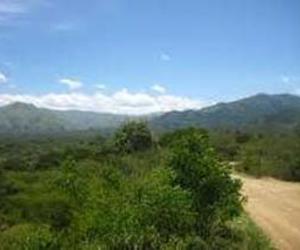40% of Cuban agricultural land suffers erosion: expert
- Submitted by: manso
- Business and Economy
- 10 / 13 / 2010

English.news.cn. 2010-10-12 11:30:40. HAVANA, Oct. 11 (Xinhua) -- Over 40 percent of Cuba's agricultural areas are damaged by erosion, poor drainage and low fertility, an expert said on Monday.
Artemio Chacon, soil specialist on the Agriculture Delegation in the eastern province of Holguin, told official daily Granma that the damage is caused by the effects of acidity and compaction, and also due to the global climate change.
He said that in Holguin, about 80 percent of arable land suffers from erosion, so they are pushing a program that gives priority to the training of agricultural workers and the efficient use of resources.
Chacon said it is necessary to monitor the compliance with the local legislation on the protection, use and conservation of soil, which prohibits farmers from irrigating land with water of poor quality, burning crop residues without authorization and depositing toxic substances in inappropriate places.
He noted many farmers "do not understand that the quality of the soil affects directly the yield."
Cuban government reported in 2008 that half of the country's cultivable land was unproductive, and established a new policy to boost food production and reduce imports.
Cuban leader Raul Castro insisted that food production is a matter of "national security" and has reiterated the policy of activating the island's agricultural production.
Cuba imports over 80 percent of the food consumed by its 11.2 million inhabitants, and according to official figures, the country spends more than 1.5 billion U.S. dollars annually in satisfying the domestic needs.
Source: http://news.xinhuanet.com/english2010/world/2010-10/12/c_13553054.htm
Comments